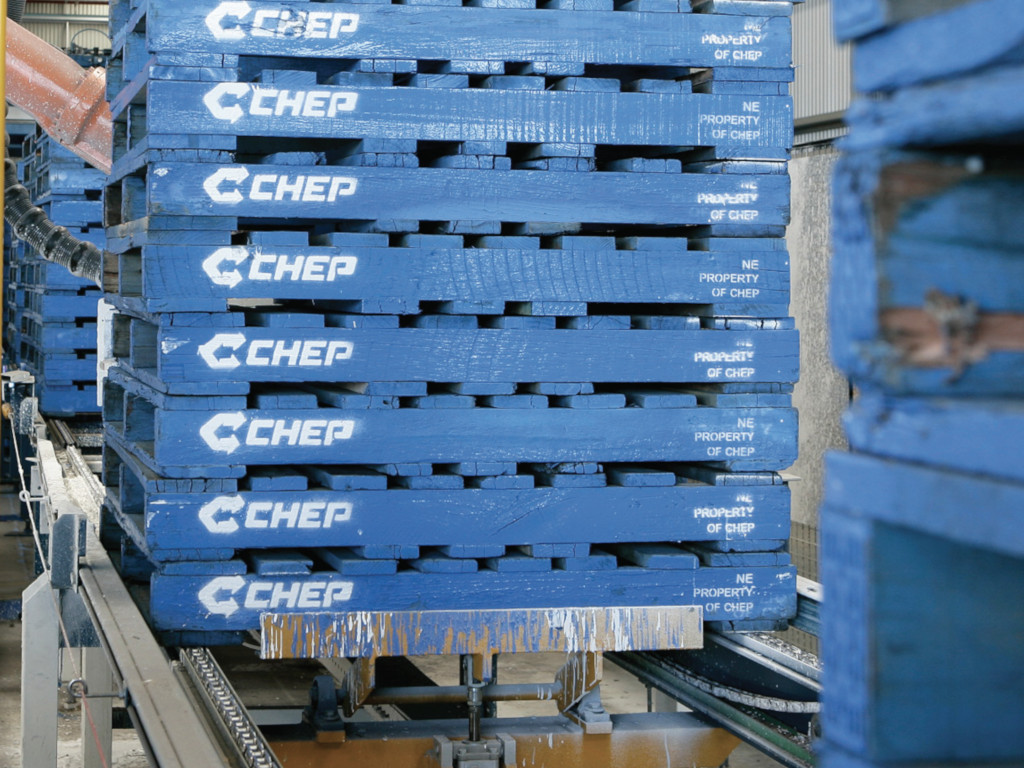The world’s leader in reusable pallets
Shared Pallets
For Brambles, sustainability is nothing new, it has been the company’s business model since 1958. The company’s unique handling of pallets points the way not only to sustainable practices but to the logistics potential of Big Data.
An Australian company has constructed a thriving global logistics business and gained a glittering international reputation for sustainable practices with that most basic of freight-related implements — the pallet.
Brambles, through its CHEP subsidiary, is the world’s leader in reusable pallets and a pioneer in reusable assets, what has been in recent years dubbed the sharing or the circular economy.
“Reuse different than recycle. If you want to amplify that to the nth degree, you share it. It’s been our business model since 1958; it hasn’t changed,” said Sean O’Sullivan, Brambles vice president of investor relations and corporate affairs. “It’s the convergence of the circular and the sharing economy, getting the best of both worlds in terms of maximizing the use of assets.”
O’Sullivan met with American Journal of Transportation at Brambles’ headquarters, in Sydney’s city center. He was joined by Lachlan Feggans, the company’s director of sustainability.
Publicly traded, Brambles posted revenue of $2.856 billion and a net profit of $320 million for the first half of the fiscal year that will end June 30. Brambles was earlier this year cited by Barron’s magazine as second among the top 20 international sustainable companies.

CHEP’s business works like this:
Manufacturers pay Brambles to access a set number of pallets, a charge called an “issue fee.” Manufacturers load the goods on the pallets, which are then transported to distribution centers and then to retailers. Brambles is responsible for delivering and picking up empty pallets, repairing any that are damaged and then placing them back in the pool-based system. Brambles now owns a tad under 300 million pallets.
Brambles sells manufacturers, and by extension, retailers on the simple proposition that they don’t need a single-use pallet to move goods through the supply chain system. Brambles has found that one of its pallets can last for ten years and be used, at least in Australia, for about three times a year, or 30 times in all. So, companies are able to piggyback on Brambles’ environmentally sustainable practice.
“That’s what our sustainability story is all about,” said Feggans. “You start to get really significant numbers using our pallets versus a single use. We can say to a Kroger, ‘use of our pallets in one year equates to saving X amount of carbon, X amount of tons of waste.’” Companies can use that data to underscore their own environmental savings.



